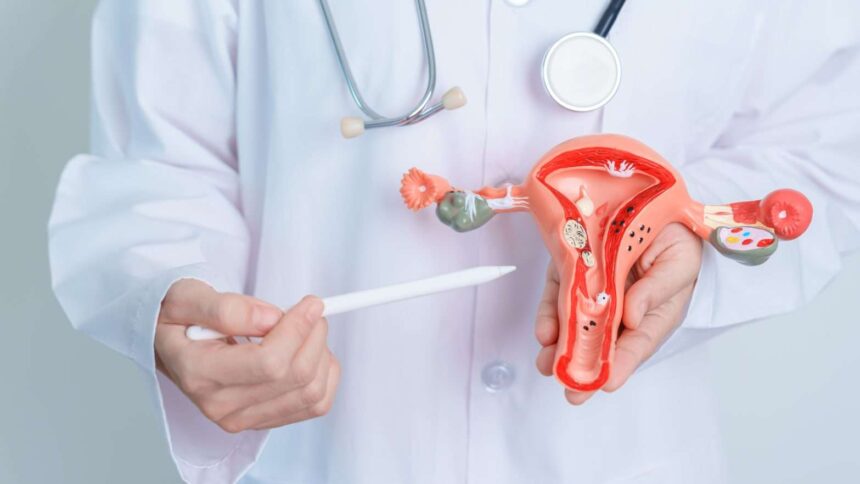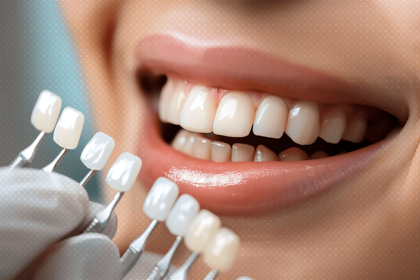Polycystic Ovary Syndrome (PCOS) is a hormonal disorder that affects millions of women, often starting during their teenage years or early 20s. Unfortunately, many women go undiagnosed for years because the symptoms can be misunderstood or overlooked. Early detection is essential to manage symptoms, prevent complications, and improve fertility.
In this article, we’ll explore the 10 early signs of PCOS that every woman should be aware of.
What is PCOS?
Understanding the Basics
Polycystic Ovary Syndrome (PCOS) is a hormonal imbalance where the ovaries produce excessive male hormones (androgens), leading to irregular or absent ovulation. The term “polycystic” refers to the multiple small cysts that may form on the ovaries, although not every woman with PCOS has cysts.
PCOS can impact menstrual health, fertility, skin, hair, metabolism, and even mental well-being.
10 Early Signs of PCOS You Shouldn’t Ignore
1. Irregular Periods
One of the most common early signs of PCOS is infrequent, irregular, or absent periods. Women may go months without menstruating, or have cycles that are unusually long or short.
2. Excessive Hair Growth (Hirsutism)
Women with PCOS may notice excess hair growth on the face, chest, back, or stomach due to elevated levels of androgens (male hormones).
3. Acne and Oily Skin
Persistent acne, especially along the jawline, and greasy skin that doesn’t respond to normal treatments can indicate hormonal imbalances caused by PCOS.
4. Weight Gain or Difficulty Losing Weight
Many women with PCOS experience sudden weight gain, especially around the abdomen, and find it difficult to lose weight despite diet and exercise.
5. Thinning Hair or Hair Loss
Hormonal imbalance can cause scalp hair thinning or a receding hairline in a male-pattern baldness style.
6. Dark Skin Patches (Acanthosis Nigricans)
Dark, velvety patches of skin may appear on the neck, underarms, groin, or back. This is a common symptom linked to insulin resistance in PCOS.
7. Mood Swings or Depression
PCOS affects not just the body but also the mind. Anxiety, irritability, mood swings, and depression are often early indicators.
8. Fatigue and Low Energy
Hormonal imbalances can lead to persistent tiredness, low motivation, and poor sleep quality.
9. Infertility or Difficulty Getting Pregnant
Women with PCOS often struggle with irregular ovulation or anovulation, making it harder to conceive naturally.
10. Pelvic Pain or Bloating
Some women may experience pelvic discomfort, abdominal bloating, or a feeling of heaviness due to enlarged ovaries or cysts.
What Causes PCOS?
While the exact cause is still unknown, several factors contribute to PCOS:
- Hormonal Imbalance: Elevated androgens and insulin resistance
- Genetics: Family history plays a role
- Lifestyle Factors: Poor diet, lack of exercise, and stress
- Insulin Resistance: Leads to high blood sugar and weight gain
How is PCOS Diagnosed?
Diagnostic Criteria (Rotterdam Criteria)
Doctors usually diagnose PCOS based on the presence of at least two of the following three:
- Irregular or absent ovulation
- Signs of high androgen levels (clinical or through blood tests)
- Polycystic ovaries visible on ultrasound
Managing PCOS: What You Can Do
| Management Area | Best Practices |
|---|---|
| Diet | Eat whole foods, reduce sugar, and control carbs |
| Exercise | Moderate activity (30 mins/day) helps with weight and insulin |
| Medication | Birth control pills, metformin, and fertility drugs if needed |
| Skincare | Topical treatments for acne and hair growth control |
| Mental Health | Therapy, journaling, and stress management |
Conclusion
PCOS is a common but often misunderstood condition that can affect every aspect of a woman’s health. Recognizing the early signs is the first step toward managing the disorder effectively. Whether it’s irregular periods, excessive hair growth, or mood swings — paying attention to your body can lead to early diagnosis and timely treatment. Consult a healthcare provider if you notice any of these symptoms, and take control of your health before complications arise.
Frequently Asked Questions (FAQs)
1. Can PCOS be cured?
No, PCOS cannot be cured, but it can be effectively managed through lifestyle changes, medications, and medical support.
2. Is it possible to get pregnant with PCOS?
Yes, many women with PCOS can conceive with lifestyle changes, medication, or fertility treatments.
3. Does every woman with PCOS have ovarian cysts?
No, not all women with PCOS develop cysts. The diagnosis is based on a combination of symptoms, not just cysts.
4. Is PCOS a genetic condition?
PCOS can run in families, so genetics play a role, but lifestyle and hormonal factors also contribute.
5. Does weight loss help with PCOS symptoms?
Yes, even a 5–10% reduction in body weight can improve symptoms and regulate menstrual cycles.
6. What kind of diet is best for women with PCOS?
A low-glycemic index diet rich in fiber, lean proteins, and healthy fats helps manage insulin and hormones.
7. Can teenagers have PCOS?
Yes, PCOS often begins during puberty or teenage years, which is why early awareness is crucial.
8. What happens if PCOS is left untreated?
Untreated PCOS can lead to infertility, type 2 diabetes, high blood pressure, heart disease, and endometrial cancer over time.









